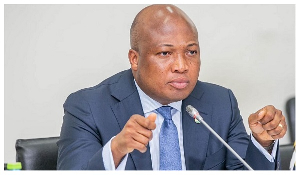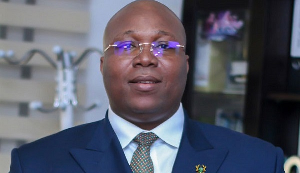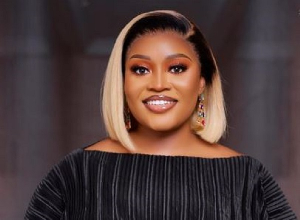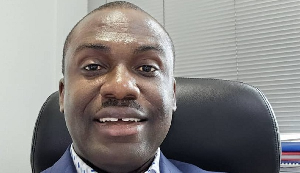When famed Ghanaian actor Fred Amugi turned 74 last year, he had just one wish in video shared on social media: to see himself on a billboard as a brand ambassador. “I am only asking for a job; all I am asking for is to be put on a billboard. I am at the latter stage of my career and I am saying is use me now; don’t wait till I am gone.”
His request for that “birthday gift” generated rave reviews among Ghanaians. Some were quick to categorise him as a suffering, ageing celebrities in need public support to survive. Others celebrated his call, and urged corporate Ghana to honour his request.
In a no time, Caveman Watches signed the actor, and he has since been their brand ambassador. The actor has also been quite on active on screen and on stage, starring in many productions after the call. That is the power of reaching out, lest you are forgotten.
Modern fame, it is said, operates as an open system wherein people continually move in and out of celebrity status. Both scholarly work and public discourse suggest that fame is short-lived in today’s world due to rapidly changing fashions, and an unending search for the next big thing. And that, the same waves that generate sudden fame can lead the media and audiences to just as abruptly, lose interest in and abandon a celebrity idol.
While many celebrities generate attention for years or decades, beneath this attention lies instability. Celebrity icons, as celebrity researcher Jeffery Alexander observes, “are transitional objects…mediating between internal and external reality, between the deepest emotional needs and contingent possibilities for their satisfaction.”
The Ghanaian reality
Every year, news of actors, musicians and athletes in financial and health crisis in Ghana raises an important question about the management of celebrity lifestyle. Public discussions recently about issues facing Ghanaian celebrities, who for one reason or the other have become less active or ageing, are a regular feature on almost all entertainment shows on radio and television as well as online portals. Most of these discussions have centered around two main issues: their financial well-being and their physical health.
Most of those celebrities are ageing; while a few, though quite young may have found themselves in a situation that calls for public help. The media has found the state of these celebrities worth highlighting, unlike the recent past where the state of the post-prime celebrity was one kept out of the public until the worst happened: death! When they die, then there is a resurrection of their plight.
It is a fact that the success of the media and entertainment industry centers around the successful positioning of its key assets: celebrities. It becomes bizarre for many followers of celebrities to realise in their later lives that they live in near penury. This brings to the fore a larger industrial discussion within the arts sector in Ghana: Do creatives get real value for their works?
Failing CMOs and Welfare bodies?
The Ghana Music Rights Organization (GHAMRO), the Audiovisual Rights Society of Ghana (ASORG) and the Reprographic Rights Organization of Ghana (Copy Ghana) are the three Collective Management Organisations (CMOs) in Ghana. Apart from Copy Ghana, which collects royalties on behalf of authors and writers, GHAMRO holds the rights for music composers, authors, producers and publishers, while ASORG targets right owners in the audiovisual industry (movie producers, actors and writers.)
In spite of these legal structures, creative artistes still complain of near zero benefit from their rights. Celebrated Ghanaian music and sound engineer, Zapp Mallet, who had once served as an official of GHAMRO, in an interview with Accra based Joy FM, believes he is “in the right profession, the right vocation, but in the wrong location” because revenue flow for him as a sound engineer has always been a problem, largely because “GHAMRO has a tough time collecting revenues of artistes, and that if the institution could fix its collection issues, generations coming would enjoy the fruits of their labor.”
The welfare associations within the creative arts industry, especially Musicians Union of Ghana (MUSIGA) and Ghana Actors Guild (GAG) have also had their fair share of blame for the plight of their members. The GAG has been battling with leadership crisis for some time. MUSIGA, has been the look-up-to welfare body for most musicians, although the young musicians do not consider it attractive, largely because of transparency issues.
With the establishment of the Ageing Musicians Welfare Fund (AMWeF) in 2013 by MUSIGA to cater for musicians who are 60 years and above as well as incapacitated musicians, with a benevolent donation fund of Ghs200 every six months. On the whole, the AMWeF did not alleviated the plight of the ageing musicians; neither are the CMOs. For the actors, and their welfare bodies? That is a story to be told someday!
Correcting the wrongs
In spite of the challenges that come with celebrity status, it has become appealing for many because of the constant media spotlight, most of the time coming with it, wealth and access. However, the alluring benefits of being a celebrity is often short-lived and when not managed properly, is lost. There are lessons for all players in the space celebrities play; so are the responsibilities all such players ought to bear.
The young celebrities seem to be “doing well” at least from what they show and tell. They have access to the internet and media personnel to push and position them and their services and also generate revenue. They have managers/intermediaries who help in their business. They seem better positioned today. But tomorrow?
The tomorrow would be dependent on how healthily the young celebrities lived, the people they surrounded themselves with, how closely they were with, and invested in their family, and the investments they made for the future.
And if celebrity status is hinged on media visibility and the audience, the young celebrity’s relationship with the media and public is an investment as well for the future. If the media and the public could marshal for Caveman Watches to sign on Fred Amugi, it tells a story.
The ageing stars are still with us. They still resonate with a segment of the population. They deserve to be engaged. Can we make space for them at our events as special guests? What role do we accord them this “December in Ghana” and beyond? This is one way of keeping them fit, fashionable and functional. For a country that disengages its ageing population, dies young!
Opinions of Thursday, 21 December 2023
Columnist: Michael Yamoah















